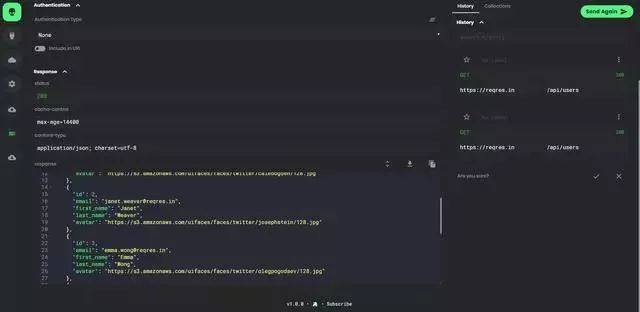
OOM Killer –如何在Linux中创建OOM排除项
当Linux机器上运行内存不足的内核将开始杀死进程以free up ram。这就是所谓的OOM杀手。OOM代表内存不足。不幸的是,Linux内核OOM杀手通常会杀死重要的进程。在许多情况下,一旦OOM杀手将其丑陋的头抬起,我的系统就会完全被软管塞住。幸运的是,您可以通过提供pid数字列表来告诉内核不要OOM杀死某些进程。如果您运行的系统内存压力很大,并且想确保重要进程(例如sshd)永远不会被杀死,那么这些选项可能对您有用。
告诉OOM杀手忽略一个进程
禁用OOM杀手是逐个进程完成的,因此您需要知道要保护的正在运行的进程的PID。这远非理想,因为进程ID可以经常更改,但是我们可以编写脚本。
如http://linux-mm.org/OOM_Killer所述:“如果将/proc/{$PID}/oom_adj的值设置为常量OOM_DISABLE(当前定义为- 17)。”
这意味着,如果我们知道OOM杀手的PID,可以使用以下命令在单个进程上禁用它:
echo -17 > /proc/$PID/oom_adj
使用pgrep,我们可以只知道进程名称来运行它。例如,让我们确保ssh侦听器不会杀死OOM:
pgrep -f "/usr/sbin/sshd" | while read PID; do echo -17 > /proc/$PID/oom_adj; done
在这里,我们使用pgrep搜索匹配“ / usr / sbin / sshd”的完整命令行(-f),然后为每个匹配的pid将-17回显到procfs条目中。
为了自动执行此操作,您可以定期运行cron以更新oom_adj条目。这是确保在重新启动守护程序或服务器后,将sshd从OOM杀手中排除的简单方法。
*/1 * * * * root pgrep -f “/usr/sbin/sshd” | while read PID; do echo -17 > /proc/$PID/oom_adj; done
上面的作业将每分钟运行一次,更新与/ usr / sbin / sshd匹配的当前进程的oom_adj。当然,可以将其扩展为包括您希望从OOM杀手中排除的任何其他进程。
我建议在单个进程级别禁用OOM杀手,而不是在系统范围内将其关闭。完全禁用OOM Killer将导致您的系统在沉重的内存压力下陷入内核恐慌。通过排除关键的管理过程,您至少应该能够登录以解决高内存使用问题。
那怎么判断进程是不是被OOM Killer给干掉了呢?
可以从 /var/log/messages 这个日志查看,是否有abrt或kill之间的信息,如下日志:
[root@centos157 log]# cat messages-20200223
Feb 16 03:33:01 centos157 rsyslogd: [origin software=”rsyslogd” swVersion=”5.8.10″ x-pid=”1108″ x-info=”http://www.rsyslog.com”] rsyslogd was HUPed
Feb 16 15:39:29 centos157 abrt[26449]: Saved core dump of pid 23145 (/usr/lib/jvm/jdk1.8.0_171/bin/java) to /var/spool/abrt/ccpp-2020-02-16-15:38:35-23145 (998699008 bytes)
Feb 16 15:39:29 centos157 abrtd: Directory ‘ccpp-2020-02-16-15:38:35-23145′ creation detected
Feb 16 15:39:29 centos157 abrtd: Executable ‘/usr/lib/jvm/jdk1.8.0_171/bin/java’ doesn’t belong to any package and ProcessUnpackaged is set to ‘no’
Feb 16 15:39:29 centos157 abrtd: ‘post-create’ on ‘/var/spool/abrt/ccpp-2020-02-16-15:38:35-23145′ exited with 1
Feb 16 15:39:29 centos157 abrtd: Deleting problem directory ‘/var/spool/abrt/ccpp-2020-02-16-15:38:35-23145′
Feb 22 18:31:49 centos157 abrt[31071]: Saved core dump of pid 8707 (/usr/lib/jvm/jdk1.8.0_171/bin/java) to /var/spool/abrt/ccpp-2020-02-22-18:31:32-8707 (694501376 bytes)
Feb 22 18:31:49 centos157 abrtd: Directory ‘ccpp-2020-02-22-18:31:32-8707′ creation detected
Feb 22 18:31:49 centos157 abrtd: Executable ‘/usr/lib/jvm/jdk1.8.0_171/bin/java’ doesn’t belong to any package and ProcessUnpackaged is set to ‘no’
Feb 22 18:31:49 centos157 abrtd: ‘post-create’ on ‘/var/spool/abrt/ccpp-2020-02-22-18:31:32-8707′ exited with 1
Feb 22 18:31:49 centos157 abrtd: Deleting problem directory ‘/var/spool/abrt/ccpp-2020-02-22-18:31:32-8707′




近期评论